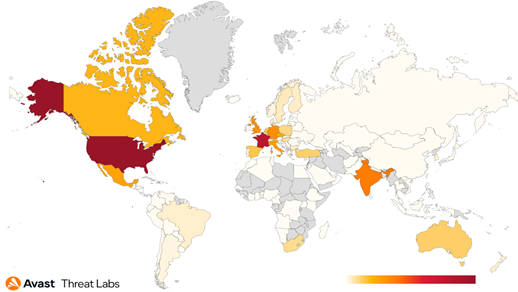TEMPE, Ariz. and PRAGUE — November 23, 2022 — Researchers of Avast, a leading digital security and privacy brand of Gen™, have identified a growing email dating scam that tricks users to send them money. The scam has existed in some capacity over the last 15 years but has evolved over time to avoid detection by spam filters. This scam appears in the form of an email, usually with a PDF file attached. When a user opens the email, it often contains pictures of a woman, a message ‘from her’, and a link so the user can ‘talk to her’. A creative solution used by this campaign to bypass spam filters is to send a Google Class invitation with the same email content. In either case, once the link is clicked, the email redirects to a website that asks for your email address and ends with asking the user to pay for a subscription of $39.99, to talk to the “woman of your dreams”. People affected by this scam have reported that once they paid the subscription fee, they never received any message from the woman in the email.
Avast detected and blocked 7,900 attacks in the first week, which ran from October 29th to November 4th, and in the following days from November 5th to the 14th, Avast detected and blocked more than 70,000 attacks. The United Kingdom was attacked by more than 4,200 attempts. The malicious campaign has targeted countries across Europe and Asia, with high numbers in France, India, and the Czech Republic.

“Scammers take advantage of human weaknesses, in this case of people hoping for an easy way to get in contact with women or even find a partnership”, said Luis Corrons Avast Security Evangelist. “We may sometimes wonder how somebody would fall for a scam, but really, this can happen to anyone in a moment where one doesn’t pay attention. We advise people to be mindful at all times in the digital world, however, in order to help protect people, human-centric safety solutions are key so people will be warned in the first place.”
To help Avast users stay safe from this and other email dating scams, Avast Security Evangelist, Luis Corrons shares his top tips:
- Keep your antivirus up-to-date — Many antivirus, including from Avast, include protection for your email, whether that’s in the cloud or on the device, and can filter out suspicious emails that might be coming into your inbox. This is one of the best first line of defenses designed to keep these scammers out.
- Don’t click on any links or download any attachments — The scammer behind the email could be attempting to install harmful malware on your device or steal your personal information in another method. The safest option is to not interact with the email to avoid this.
- Learn how to decipher a scam email — In this scenario, the user is receiving an unsolicited email from a sender they do not know that is related to dating. Act with caution and review the details to see if it is something you would be expecting to receive and from who. By reviewing the sender and the grammar and spelling of the email, a user can quickly identify that this is not sent by someone they know and doesn’t have good intentions.
- When in doubt, delete! — The best course of action for any email that makes you unsure of its legitimacy is to delete it. If it ends up being a legitimate email, chances are the sender will follow up or send something again.
For more information on the research please visit: https://blog.avast.com/looking-for-love-in-all-the-wrong-internet-places









